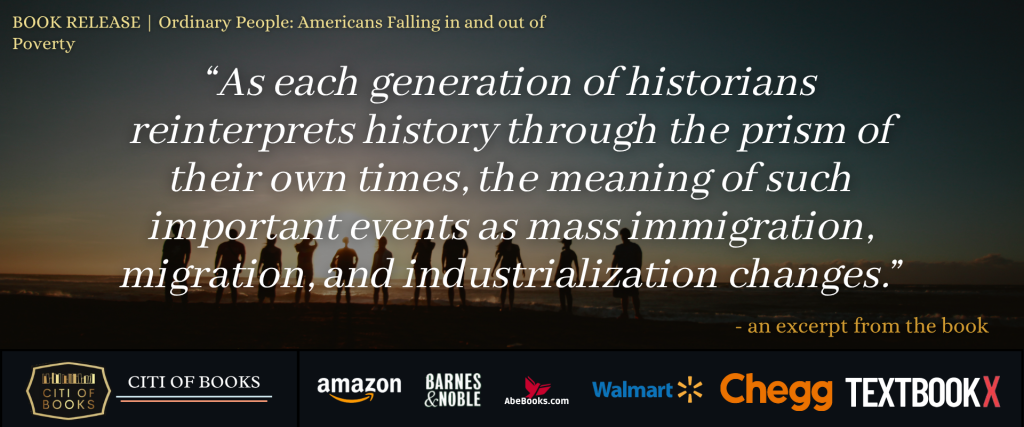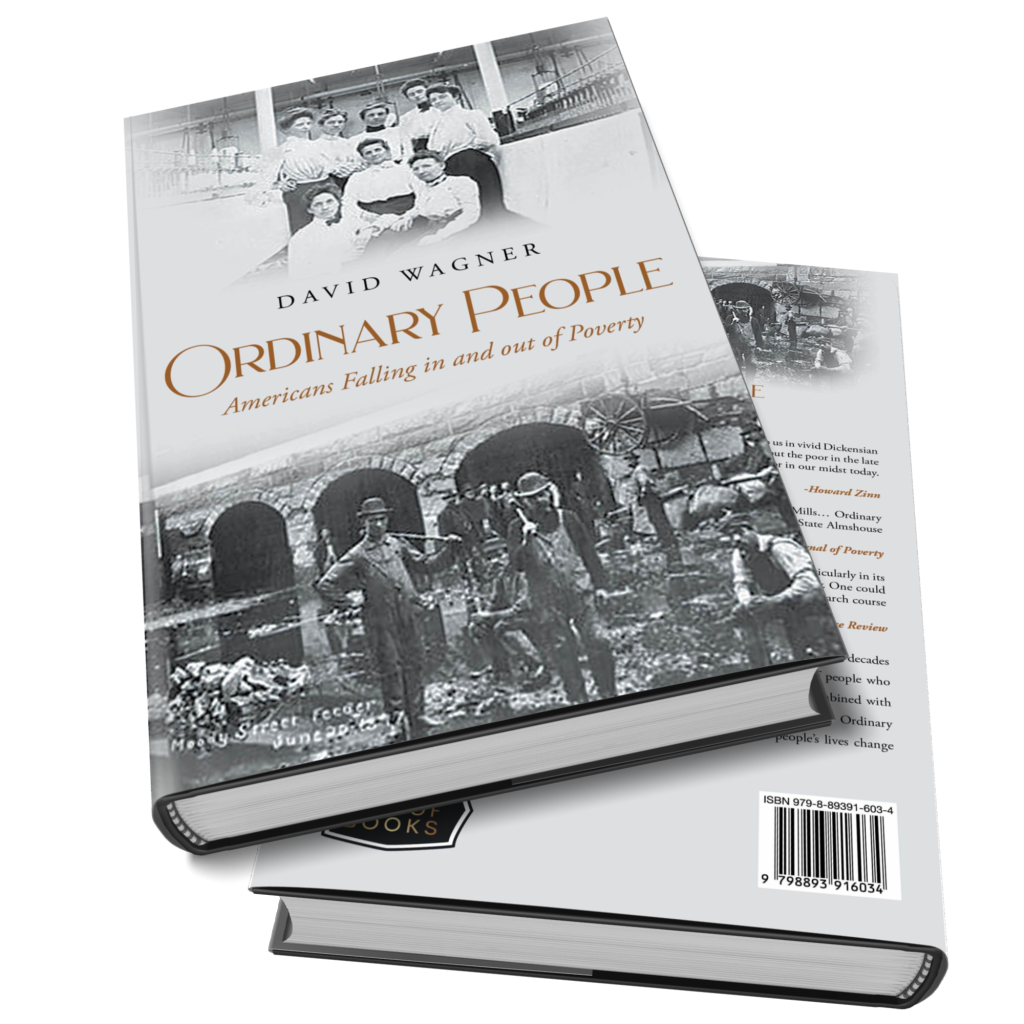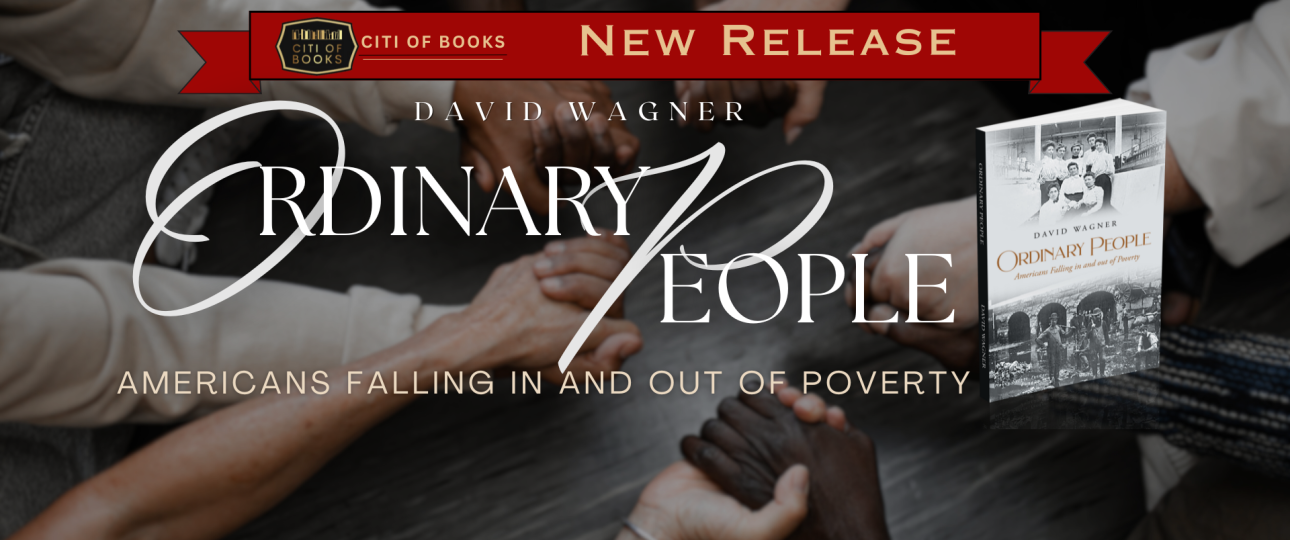
“Ordinary People: Americans Falling in and out of Poverty” by David Wagner is about his commitment to social justice and remembrance of the marginalized. He rediscovered a trove of personal bios from the Tewksbury Almshouse and recognized an opportunity to humanize institutional history. Incapable of being reduced to statistics, these individuals emerged through genealogical and administrative records to tell their own stories. Proudly published by Citi of Books, this is now available on Amazon, Barnes & Noble, and other major retail platforms.
David Wagner is an is an emeritus professor of sociology and social work at the university of Southern Maine. He is the author of twelve books, including the award-winning Checkerboard Square and The New Temperance as well as What’s Love Got to Do With it?, The Poorhouse, and Confronting Homelessness. He now lives in Southern California.
“Ordinary People: Americans Falling in and out of Poverty” by David Wagner delves into the lives of individuals who experienced poverty during the decades following the U.S. Civil War. Through the lens of inmates from one of Massachusetts’s largest almshouses at Tewksbury, Wagner brings to light first-person biographies, enhanced by genealogical and official records, that trace the varied trajectories—from hardship to resilience—of ordinary people living at the margins. By reframing poverty as a fluid, dynamic condition rather than a static identity, the book challenges readers to understand how people adapt, survive, and sometimes escape across time.

The narrative begins with an exploration of the Massachusetts State Almshouse at Tewksbury, set within the broader context of immigration and industrialization. Wagner then introduces us to individuals labeled as “ordinary,” charting their lives as immigrants uprooted, workers displaced, or families in crisis. These stories unfold in three thematic parts: Mobility and Resilience, which highlights economic and geographic movement; Crisis in the Family, which reveals impacts of out-of-wedlock births and desertion; and Age and Poverty, sharing the experiences of children and the elderly within institutionalization. Throughout, Wagner emphasizes that poverty did not define these people—it as part of their journey.
“Ordinary People: Americans Falling in and out of Poverty” is not only a meticulously researched work of history, but also a tribute to overlooked lives and the power of human agency. For readers interested in historical empathy, social policy, or ordinary stories living under extraordinary pressure, this book provides both depth and clarity. It redefines poverty as a state in flux, revealing the courage, creativity, and complexity of those who lived through it.

“Ordinary People: Americans Falling in and out of Poverty” by David Wagner is now available for purchase through the links provided below:
- Citi of Books: https://citiofbooks.com/bookstore/new-release/ordinary-people-americans-falling-in-and-out-of-poverty/
- AbeBooks: https://www.abebooks.com/Ordinary-People-Americans-Falling-out-Poverty/32235963258/bd
- Amazon: https://www.amazon.com/Ordinary-People-Americans-Falling-Poverty/dp/B0FG959QM4/ref=sr_1_1?dib=eyJ2IjoiMSJ9.mTCdoSFR1LGVxCRKaQJPfd6-YmZsZVj3nQNZWeQ99NY.6Ol9GLvWVL9dYd-xCLC5KIhu7wQsS21miSsxF1IF9_E&dib_tag=se&keywords=Ordinary+People%3A+Americans+Falling+in+and+out+of+Poverty&qid=1754347476&s=books&sr=1-1
- Barnes & Noble: https://www.barnesandnoble.com/w/ordinary-people-david-wagner/1147753400?ean=9798893916034
- Walmart: https://www.walmart.com/ip/Ordinary-People-Americans-Falling-in-and-out-of-Poverty-Paperback-9798893916034/17091323920?classType=REGULAR&from=/search

